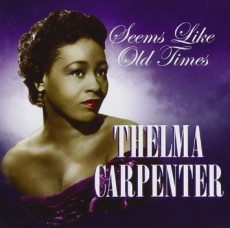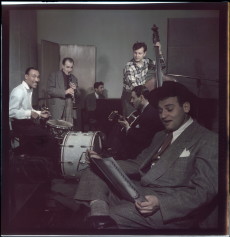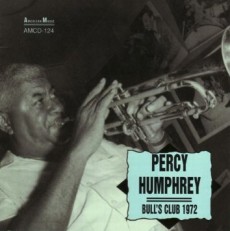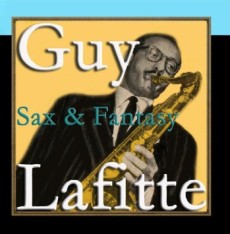
Daily Dose Of Jazz…
Irving Harold Mills was born Isadore Minsky on January 16, 1894 in Odessa, Ukraine and emigrated with his parents and brother to the lower east side of New York City. After his father died in 1905, he worked a number of odd jobs until relocating with his wife to Philadelphia. By 1918 he was working for publisher Leo Feist and his brother Jack was working for music publishing firm McCarthy & Fisher.
In 1919 the brothers founded Jack Mills Music, later renamed Mills Music in 1928. Together the brothers discovered a number of great songwriters, including Sammy Fain, Harry Barris, Gene Austin, Hoagy Carmichael, Jimmy McHugh and Dorothy Fields. He was responsible for greatly advancing and even starting a few of the careers of Cab Calloway, Duke Ellington, Ben Pollack, Jack Teagarden, Benny Goodman, Will Hudson, Raymond Scott and many others. He was instrumental in getting Duke Ellington hired by the Cotton Club.
Although he only sang a little, Irving put together his own studio-recording group, Irving Mills and His Hotsy Totsy Gang. The group was comprised of Tommy and Jimmy Dorsey, Joe Venuti, Eddie Lang, Arnold Brillhardt, Arthur Schutt and Manny Klein. Over the years Glenn Miller, Benny Goodman and Red Nichols would also be members.
Mills was one of the first to record black and white musicians together, using twelve white musicians and the Duke Ellington Orchestra on a recording of St. Louis Blues on one side and a medly of songs called Gems from Blackbird of 1928 with Mills singing with Ellington’s orchestra. One of his most significant innovations was the “band within a band” concept, recording small groups to record hot small group sides for the various dime store labels.
He also started an artist booking company, a publishing subsidiary, record labels that recorded Cab Calloway, Hudson-DeLange Orchestra, Raymond Scott, Adrian Rollini, Barney Bigard, Cootie Williams, Rex Stewart,, Johnny Hodges, Noble Sissle, Frankie Newton, Johnny Hodges, Chu Berry, The Three Peppers, Billy Kyle and other minor jazz and pop acts in New York.
He produced one picture, Stormy Weather for 20th Century Fox in 1943 with Calloway, Lena Horne, Zutty Singleton, the Nicholas Brothers, Bill “Bojangles” Robinson and Fats Waller. Though Hollywood wanted him to produce more film he chose to return to publishing and recording.
Music publisher Irving Mills, who put his name on the compositions of numerous Black musicians including Duke Ellington and Barney Bigard, and whose estate to this day reaps the financial benefit of all the musicians whose music he stole, passed away on April 21, 1985 in Palm Springs, California.

Daily Dose Of Jazz…
Thelma Carpenter was born January 15, 1922 in Brooklyn, New York. As a child performer she had her own radio show on WNYC in New York and won an amateur night at the Apollo Theatre in 1938. She would go on to play such 52nd Street clubs as Kell’s Stables and the Famous Door and was discovered by John Hammond.
Carpenter subsequently made her debut as a band vocalist with Teddy Wilson’s short-lived orchestra in 1939, recording Love Grows On the White Oak Tree and This Is The Moment on the Brunswick label. She joined Coleman Hawkins’ orchestra in 1940 and recorded the RCA/Bluebird Records classic album He’s Funny That Way. She followed Helen Humes as Count Basie’s vocalist and over two years recorded several sessions with the band such as More Than You Know, Do Nothing Till You Hear From Me and My Ideal.
Thelma replaced Dinah Shore as vocalist on Eddie Cantor’s radio show for the 1945-46 season, marking the first time that a black artist had become a permanent member of an all-white show without playing a character. She would also sing with Duke Ellington in concerts and on television. She was a top nightclub and major theater attraction for most of her career, performing regularly at such chic clubs as Chez Bricktop in Paris and Rome and the Capitol and Palace Theater on Broadway among others.
As a Broadway performer she appeared with Bill “Bojangles” Robinson, replaced Pearl Bailey in Hello Dolly!, performed along with Avon Long in Shuffle Along, co-starred in Barefoot In The Park and created the role of Irene Paige in Bubbling Brown Sugar. She toured nationally in Bob fosse’s Pippin and was the Good Witch of The North in Sidney Lumet’s film The Wiz. So in demand was she that Fosse and Lumet arranged their schedules so she could do both projects simultaneously. She was the mother of Maurice and Gregory Hines in the film The Cotton Club.
She also had a critically acclaimed album Thinking of You Tonight and Sepia Records posthumously released a 26-song compilation title Seems Like Old Times. Carpenter performed on television with Jackie Gleason, Eddie Condon, Duke Ellington, Diana Ross, Sammy Davis Jr. and Eric Clapton, as well as appearing on the Ed Sullivan, Merv Griffin, Paul Lynde and Cosby shows. Jazz vocalist and actress Thelma Carpenter passed away of cardiac arrest on May 14, 1997 in New York City.
More Posts: vocal

Daily Dose Of Jazz…
Jimmy “Craw” Crawford was born on January 14, 1910 in Memphis, Tennessee. For nearly 14 years from 1928 to 1942 he was the drummer of the Jimmie Lunceford big band. Playing with a strong, solid pulsation, his style became a classic trademark of the Lunceford sound and was a key factor in establishing the unique Lunceford beat.
In the 1950s, Crawford worked as a pit drummer on Broadway. He also recorded with numerous notable artists such as Ella Fitzgerald, Dizzy Gillespie, Count Basie, Sy Oliver, Bing Crosby, Benny Goodman, Kenny Burrell, Quincy Jones, Eddie Heywood and Frank Sinatra among others.
Swing era drummer Jimmy Crawford, who was notably Paul Motian’s favorite drummer, passed away on January 28, 1980 in New York City.
More Posts: drums

Daily Dose Of Jazz…
Percy Gaston Humphrey was born January 13, 1905 in New Orleans, Louisiana. He was the son of clarinetist Willie Eli Humphrey and the younger brother of clarinetist Willie and trombonist Earl. He learned the musical basics of New Orleans jazz from his grandfather “Professor” Jim Humphrey.
For more than thirty years he was leader of the Eureka Brass Band founded by trumpeter Willie Wilson and played alongside Willie Parker, John Casimir and George Lewis. After Wilson got ill, Alcide Landry, Joseph “Red” Clark and Dominique “T-Boy” Remy each temporarily led the group until 1946 when Percy took over until the demise of the band in 1975. He also played in the band of pianist Sweet Emma Barrett.
For years he led his own jazz band Percy Humphrey and His Crescent City Joymakers. He played regularly at Preservation Hall from its opening in the early Sixties until shortly before his death. He traveled and performed internationally with the Preservation Hall Jazz Band as well as his own bands.
As a leader and sideman of the various groups he recorded prolifically with Pax, Alamac, Folkways, Jazzology and Sounds of New Orleans. A 1951 album, New Orleans Parade, features Humphrey with trombonists Charles “Sunny” Henry and Albert Warner and saxophonist Emmanuel Paul. Their 1962 sessions, Jazz at Preservation Hall, Volume 1: the Eureka Brass Band of New Orleans, on Atlantic Records with his borhter Willie, Kid Sheik Cola, Pete Bocage, Alber Warner and Oscar “Chicken” Henry, Emanuel Pail, Wilbert “Bird” Tilman, Josiah “Cie” Frazier and Robert “Son Fewclothes” Lewis.
After 1975, Percy revived the name occasionally for festival performances and other appearances. Trumpeter and bandleader Percy Humphrey continued to lead his own band until his passing in New Orleans on July 22, 1995 at the age of ninety .His last gig was at the annual New Orleans jazz festival in April, three months before his death.
More Posts: trumpet

Daily Dose Of Jazz…
Guy Lafitte was born on January 12, 1927 in Saint-Gaudens, France. Most notable for his tenor saxophone work with Mezz Mezzrow from 1951–1952 and also toured with Big Bill Broonzy in 1951.
In 1954 Lafitte made Paris his home, and worked with Lionel Hampton Emmett Berry. He also collaborated on various other projects with musicians such as Wild Bill Davis and Bill Coleman.
Guy recorded six albums as a leader beginning with his debut in 1953 with All The Things You Are playing with Franck Pourcel, and continued on with Peanuts Holland, Raymond Fol, Jean-Claude Pelletier, Geo Daly, Andre Persiany, Paul Rovere, Teddy Martin, Hank Jones, George Duvivier, J.C. Heard, Clyde Lucas, Jacky Terrasson, Pierre Boussaguet and Al Lewitt.
He recorded another seven sessions as a sideman with Arnett Cobb, Bill Coleman, Sammy Price, Lucky Thompson, Buck Clayton, Charlie Singleton and Ben Webster. Tenor saxophonist Guy Lafitte passed away on June 10, 1998.
More Posts: saxophone


